Through the Aperture of the Oculus Acquisition
Facebook has acquired
Oculus VR, the news is out and by today's standards of media consumption it's also old. Luckily, despite the torrential fallout of negativity and vitriol, no blood was spilled just ink, at least figuratively.
Since then the hot water topic has simmered along with the raging angst and anger the acquisition enticed within the Oculus community of Kickstarter backers and gamers that have followed the companies developments in virtual reality.
Sellouts they cried! Giving in to the devil of online advertising, driving a stake through the heart of what virtual reality could be... at least to video games. How could they turn their backs on their faithful and devoted supporters for the taint of Facebook? Reams of comments chastising the acquisition littered the news blogs on the Oculus site; posted on and hosted by none other than Facebook.

It was damn foolish and has proven more so in the days and weeks which have followed; though many of the more conscious concerns raised by wary commenters were of sound reason it is still far too early to cast a stone at Oculus, the acquisition won't even close for another two months.
Though the news eclipsed the Ides of March by ten days, Oculus hasn't betrayed their backers nor those that supported their developments; instead they've put their best foot forward to bring virtual reality to the light of the masses, not just gamers but everyone.
For now what can be concluded is that Facebook and Zuckerberg are maturing as a technology company and entrepreneur by diversifying their business; this time branching into hardware rather than software. Facebook is no longer a company hosting and fostering a social networking site, nor are they strictly a software company incubating start-up application development teams. They have taken the plunge which few other tech companies have, combining software and hardware into their portfolio.
Even though the scales are reserved it worked well for Apple, and iTunes worked well for the music industry from independent recording artists to the major labels by evolving distribution into a digital platform. Who's to say the same won't occur for virtual reality because of the new-found business relationship between Facebook and Oculus VR? It's a time will tell question, but a question which is already being answered with a bright future lingering on the horizon; although partly cloudy it's a relationship that is looking good.
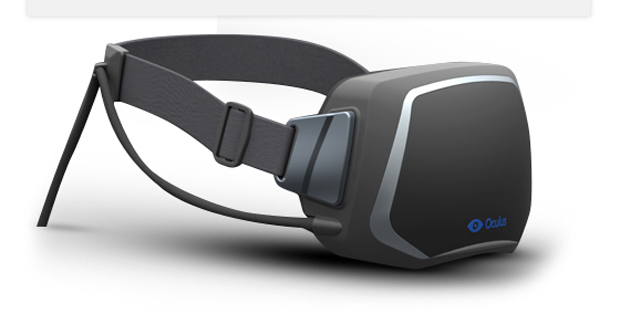
Naturally, given the enormous amount of capital proposed by Facebook, we ought expect the cash infusion to accelerate the development and distribution of a consumer product being brought to market. That isn't exactly in line with the reality of circumstances Oculus is working with. However it will accelerate a key issue in the short-term, more payroll affords more team building; they are building one hell of a team.
Two weeks have now passed since the acquisition news broke and within those fourteen days two monumental all-star new hires have come to the Oculus team, with a third that joined two weeks prior to the acquisition.
Atman Binstock, now Chief Architect,
Michael Abrash now Chief Scientist, and Aaron Nicholls now a scientist at Oculus have bolstered the team with immense talent, experience, and expertise in this once more emerging field of display technology. These names ought be familiar to those that have been following the developments of virtual reality over the last few years; they are the core of Valve's VR team, the leadership which brought the Valve VR room demo to life. Why did they jump ship? The Facebook acquisition.
"The resources and long-term commitment that Facebook brings gives Oculus the runway it needs to solve the hard problems of VR – and some of them are hard indeed. I now fully expect to spend the rest of my career pushing VR as far ahead as I can," said Michael Abrash, Chief Scientist at Oculus VR in the company blog post which announced his hiring.
Oculus now has the financial means to build the team they envision, solving the problems of virtual reality which were left dormant two decades ago; problems that brought an end to the commercial viability of virtual reality. That means a dynamic team with expertise that ranges from technical abilities for both hardware and software, design and architecture for both the user-interface and the physical product, along with technical and perceptive science; all of which will bring about a device that is comfortable to wear and use for extended periods of time with a high fidelity of performance and presence.
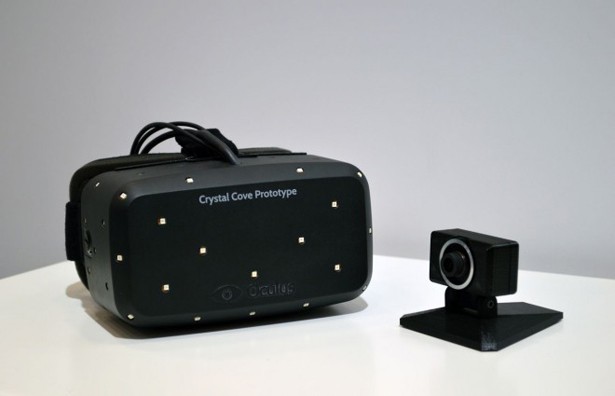
With the most recent hires Oculus has furthered the team's capability to address the elements of the virtual reality experience that are discomforting and nauseating to users; vestibular mismatch and sudden erratic locomotion. Abrash contributed a plethora of research for the virtual reality experience which involved considering vestibular mismatch carefully and deliberately to minimize the effect of motion sickness while Nicholls worked on a wide range of perceptual and physical considerations as he stated on his
LinkedIn profile.
"While the causes of motion sickness are not well understood, there are good reasons to anticipate that many of the same factors that affect presence should effect motion sickness as well; for example flawed tracking causes a mismatch between what your eyes see and what your vestibular system reports, and those sorts of conflicts are thought to be what's key to motion sickness," said Abrash during his Steam Dev Days presentation in February.
This insight and expertise serves simply as an example to highlight the dynamism that Oculus VR is developing within the team. It also accentuates the questions and problems the Oculus team is asking and solving which no other virtual reality developing team has done in the past. Bringing virtual reality to the light of existence is not simply a dissertation of technological limitations and advancements; it is a much greater dissertation on how the human body responds to a simulated environment, and how we as living and perceiving beings will respond to the aspect of presence.
How we will physiologically perceive presence is intrinsic to the commercial viability of virtual reality. Without a comfortable biomechanical and sensory experience virtual reality will once again stumble into the same pitfall which claimed the techonologies' commercial viability two decades ago.
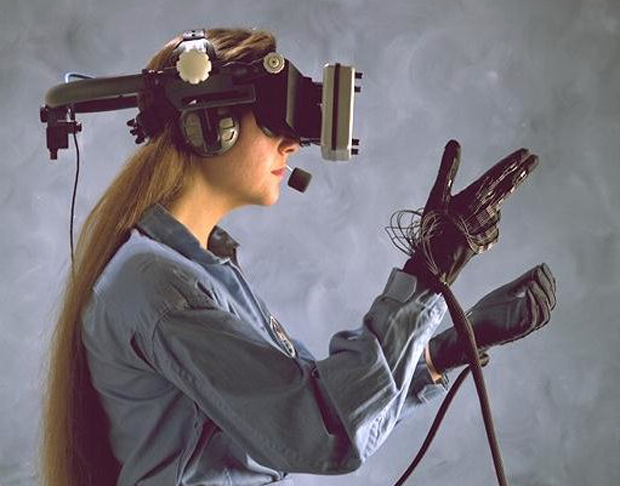
What Abrash and the Valve team began to discover through their own research and development efforts is that a comfortable sensory experience can be achieved by synthesizing specific technical requirements into a custom display with high quality optics, or lenses for viewing. Reaching that goal more than any other has been the greatest hurdle for Oculus; acquiring enough funding to further research and develop displays composed of custom components that meet their technical necessities.
"Presence can't be induced if even one of the key elements is sub-par," added Abrash during his Steam Dev Days presentation.
Custom hardware is expensive; and the more exotic and emerging components put into a piece of hardware make researching and developing a quality device even more expensive, let alone producing a consumer model. Even Sony with its vast array and depth of electronic expertise and experience accompanied by their wealth has not developed a consumer VR headset; four years after their venture into VR began the best they have to offer is what was shown at GDC and Project Morpheus is lagging behind the Oculus DK2.
What has held back this generation of virtual reality headsets are the components. Most of the display components were designed and developed for mobile platforms; phones, tablets, hand-held gaming devices. While the optics needed for VR are not manufactured on a high scale. Due to market scarcity for some of these components and the ceasing of their manufacture Oculus forcibly cancelled production and sales of the DK1.
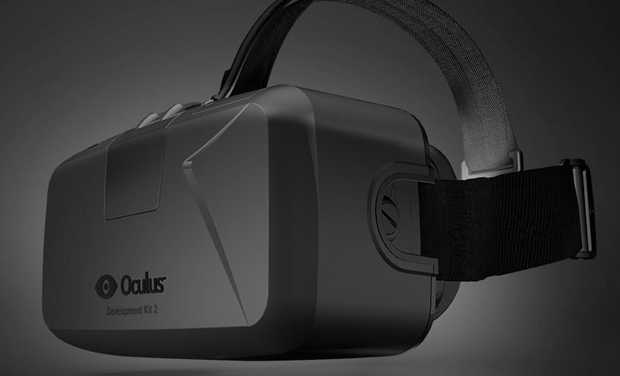
With $400 million in cash, Oculus will have the weight of finance lifted from their expensive component needs while also financially liberating the company to contact component manufacturers for custom hardware which they have yet been able to afford.
“What if we can take that technology a step further and make custom versions that was specifically designed for VR and make the very best experience,” said Brendan Iribe, CEO of Oculus during an interview with GameInformer. “Let’s call those companies up and get them to make those custom parts.”
This is where the future of the technology becomes very exciting. DK2 has been a tremendous improvement over the original developer kit; yet it is simply another step forward for the technology in whole. Instead of having a high resolution flat OLED display, imagine what a custom-tailored higher resolution OLED display printed on a flexible plastic substrate built to physical dimensions that envelop the panorama and periphery of your vision will look like. The greater presence potential with a naturally curved display won't just provide a greater visual fidelity, the perceptual fidelity will be much closer to mimicking our natural view with a curved display.
The other component limitations which Abrash and the Valve team began to explore will bring new layers to the experience of presence drawing the user farther into the illusion of virtual space. Low latency displays with resolutions exceeding 1440p with fields of view that stretch to our peripheral vision. Well calibrated and acute lenses for better focus and visual clarity. And another holy grail for presence, positional eye tracking; a problem which Abrash stated during his Steam Dev Days presentation that has yet to be solved.
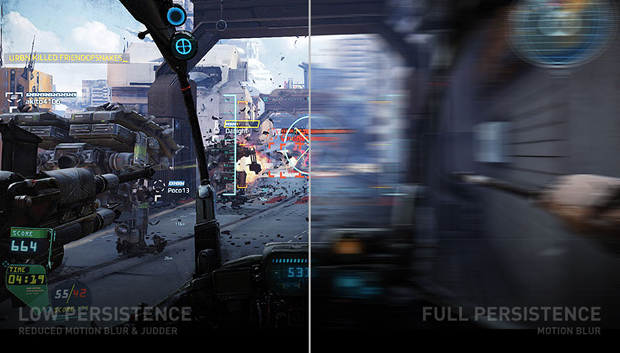
Unfortunately for the technology, which is in an exciting stage of incubation; the acquisition and the implications of Facebook now controlling Oculus has far overshadowed every stated above. The Facebook dilemma does bring to question a couple concerns right off the bat, but concerns that have few reference points; leaving their question writhing on the vine of speculation.
The two front runners are advertising and data mining; with a third contemplating how invasive Facebook will become in the future of Oculus. There is no crystal ball that can foretell the future of the business relationship between these two companies. During the conference call hosted by Facebook announcing the acquisition, Zuckerberg assured those in attendance that Oculus will continue to operate independently. A sentiment which has held true for two other well known Facebook acquisitions; WhatsApp, and Instagram.
Similar to Oculus, it is too early to tell just what will become of WhatsApp. However, Facebook has now owned Instagram for two years; owned, not operated. This is the most sound reference point we can examine. Rather than looking back a couple months, we can look closely at the business relationship between Facebook and Instagram in terms of years.
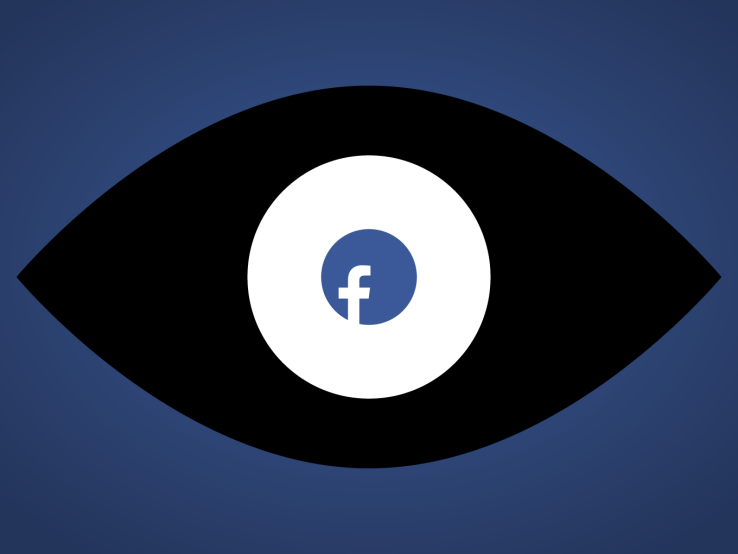
At the time Facebook brought Instagram into their fold, the photo-sharing social media site had 30 million users; a year and a half after it's launch. Today Instagram has attracted 170 million more users with a tally of 20 billion photos shared at a current rate of 60 million photos posted a day. A growth rate in user base and activity that resembles plants on Miracle Grow and or a child on steroids in the sense that is has been exponential.
However, the concern of Facebook implementing their core business model into Oculus is an aspect which recently became integrated into the Instagram platform;
advertising. When you read through what Instagram has stated about this inclusion, you realize one key aspect most of the Facebook weary commenters on the Oculus blog failed to recognize. They give you degrees of control over the content you see, just how Facebook gives you degrees of control over the information you provide their website and how that information is accessed, disseminated, and displayed for yourself and others.
What we can expect long-term from this business relationship is virtual reality not as a sole consumer platform for gaming but as a new platform of display technology. In time the social media and cinematic entertainment implementations will mimic the concerns raised by the Kickstarter backers and furious supporters that have decried the acquisition. Your virtual reality experience will have ads and data that details your use of the platform will be mined.
Video games will not suffer this fate. That content will be void of advertising congestion and the data generated by using the virtual reality platform in gaming will be useless to advertisers. Why you ask? Bullshit you say? Ask yourself one question first, what will the best virtual reality content be for gaming?
The modern repertoire of video game genres are not ready for virtual reality and porting them into the platform is inherently problematic. It is disorienting to move rapidly and backwards with a visual perspective in constant flux.
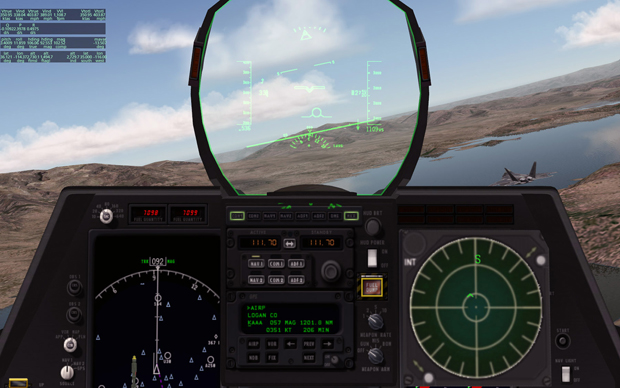
For those that play first-person shooters those elements are intrinsically familiar to that style of gameplay and how we perceptually experience it. Monitors and game engines have been optimized for the twitch factor, a skill set which FPS demands. The same is not so for virtual reality; instead simulations will take the crown of VR as that style of gameplay is inherently optimized for an experience with little head movement and a gradual visual transition of image.
Flight, racing, the emerging survival style of simulation gameplay, military simulators such as
ArmA,
Steel Beasts, or the resurgence of mech combat games. These are the styles of gameplay that will find the most natural home in virtual reality. Not games developed by major publishing houses and their subsidiary studios, but independent and self-sufficient studios and developers such as Bohemia Interactive, Codemasters, Eagle Dynamics, and Kunos Simulazioni. If you believe they'd be willing to allow Facebook to intrude upon the simulated experiences they design to be as authentic as possible, you'd be crazy to.
Nor are video games, social media, and cinematic entertainments the only applications which will benefit from virtual reality. Car manufacturers have already begun to utilize VR to simulate car designs and test them in an authentic physical environment, reducing the expensive of crash testing and quality control in the long term.
The application I also see benefiting greatly from is medical care, most specifically surgery. In time surgeons will not only be able to rehearse your specific surgical procedure in a virtual environment, through improvements to ultrasound and MRI rendering entire surgical procedures can be done virtually.

Infection is one of the greatest surgical risks. The more surgical procedures you have, the longer your surgical procedures last; the greater risk you have of infection which can be deadly. Eventually ultrasound and MRI renderings of your internal organs and physiological conditions will allow surgeons to perform virtual laparoscopy and laparotomy procedures, typically exploratory procedures, that will negate putting you under the blade reducing your risk of infection.
Through those developments doctors and surgeons can furthermore identify and diagnose your medical state so that they can formulate a procedure that directly addresses your needs while minimizing the invasiveness of your surgical procedure. Let surgeries, less time under the blade, less risk of infection, greater chance of success and survival as the procedure will be deliberately formulated for your physiological condition.
That is a powerful advancement in medical care, and one which we are a step closer towards because of the most unlikely benefactors, Facebook and Mark Zuckerberg.
As we peer through the aperture of the Oculus acquisition and focus more deliberately on the scope of its implications, the future of virtual reality becomes more crisp and clear. Oculus no longer has to proposition and wait upon a Series A round of venture capital funding, of which the gap between A and B is a cavernous gorge for any technology start-up; the funding issue has been resolved. Which will not just benefit gamers that have been waiting decades for this technology; it will come to benefit the whole of civilization across numerous applications most of which have not yet been conceived.
"By partnering with Facebook, we’ll be able to build a better product with zero compromises and a focus on growth. We’ll also be investing more heavily in made-for-VR content and exploring other opportunities to accelerate our vision," said Iribe in an open letter to the Oculus team.
This acquisition opens the door to virtual reality wider than it has ever been before. Now more than ever civilization stands on the threshold of a new dawn in technology; a digital sunrise, where we no longer interact within cyberspace but step into virtual space.
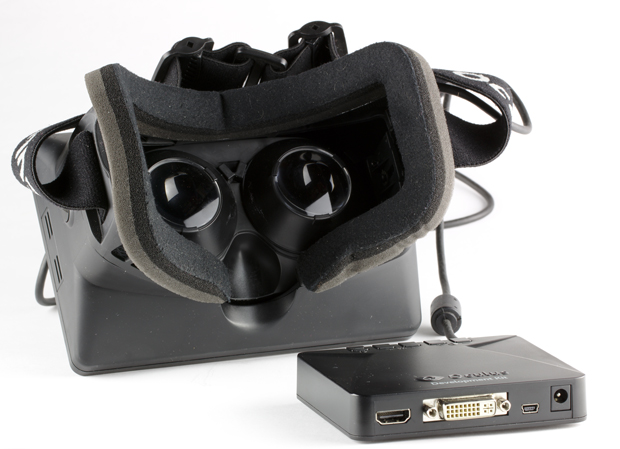
 It was damn foolish and has proven more so in the days and weeks which have followed; though many of the more conscious concerns raised by wary commenters were of sound reason it is still far too early to cast a stone at Oculus, the acquisition won't even close for another two months.
Though the news eclipsed the Ides of March by ten days, Oculus hasn't betrayed their backers nor those that supported their developments; instead they've put their best foot forward to bring virtual reality to the light of the masses, not just gamers but everyone.
For now what can be concluded is that Facebook and Zuckerberg are maturing as a technology company and entrepreneur by diversifying their business; this time branching into hardware rather than software. Facebook is no longer a company hosting and fostering a social networking site, nor are they strictly a software company incubating start-up application development teams. They have taken the plunge which few other tech companies have, combining software and hardware into their portfolio.
Even though the scales are reserved it worked well for Apple, and iTunes worked well for the music industry from independent recording artists to the major labels by evolving distribution into a digital platform. Who's to say the same won't occur for virtual reality because of the new-found business relationship between Facebook and Oculus VR? It's a time will tell question, but a question which is already being answered with a bright future lingering on the horizon; although partly cloudy it's a relationship that is looking good.
It was damn foolish and has proven more so in the days and weeks which have followed; though many of the more conscious concerns raised by wary commenters were of sound reason it is still far too early to cast a stone at Oculus, the acquisition won't even close for another two months.
Though the news eclipsed the Ides of March by ten days, Oculus hasn't betrayed their backers nor those that supported their developments; instead they've put their best foot forward to bring virtual reality to the light of the masses, not just gamers but everyone.
For now what can be concluded is that Facebook and Zuckerberg are maturing as a technology company and entrepreneur by diversifying their business; this time branching into hardware rather than software. Facebook is no longer a company hosting and fostering a social networking site, nor are they strictly a software company incubating start-up application development teams. They have taken the plunge which few other tech companies have, combining software and hardware into their portfolio.
Even though the scales are reserved it worked well for Apple, and iTunes worked well for the music industry from independent recording artists to the major labels by evolving distribution into a digital platform. Who's to say the same won't occur for virtual reality because of the new-found business relationship between Facebook and Oculus VR? It's a time will tell question, but a question which is already being answered with a bright future lingering on the horizon; although partly cloudy it's a relationship that is looking good.
 Naturally, given the enormous amount of capital proposed by Facebook, we ought expect the cash infusion to accelerate the development and distribution of a consumer product being brought to market. That isn't exactly in line with the reality of circumstances Oculus is working with. However it will accelerate a key issue in the short-term, more payroll affords more team building; they are building one hell of a team.
Two weeks have now passed since the acquisition news broke and within those fourteen days two monumental all-star new hires have come to the Oculus team, with a third that joined two weeks prior to the acquisition.
Atman Binstock, now Chief Architect, Michael Abrash now Chief Scientist, and Aaron Nicholls now a scientist at Oculus have bolstered the team with immense talent, experience, and expertise in this once more emerging field of display technology. These names ought be familiar to those that have been following the developments of virtual reality over the last few years; they are the core of Valve's VR team, the leadership which brought the Valve VR room demo to life. Why did they jump ship? The Facebook acquisition.
Naturally, given the enormous amount of capital proposed by Facebook, we ought expect the cash infusion to accelerate the development and distribution of a consumer product being brought to market. That isn't exactly in line with the reality of circumstances Oculus is working with. However it will accelerate a key issue in the short-term, more payroll affords more team building; they are building one hell of a team.
Two weeks have now passed since the acquisition news broke and within those fourteen days two monumental all-star new hires have come to the Oculus team, with a third that joined two weeks prior to the acquisition.
Atman Binstock, now Chief Architect, Michael Abrash now Chief Scientist, and Aaron Nicholls now a scientist at Oculus have bolstered the team with immense talent, experience, and expertise in this once more emerging field of display technology. These names ought be familiar to those that have been following the developments of virtual reality over the last few years; they are the core of Valve's VR team, the leadership which brought the Valve VR room demo to life. Why did they jump ship? The Facebook acquisition.
 With the most recent hires Oculus has furthered the team's capability to address the elements of the virtual reality experience that are discomforting and nauseating to users; vestibular mismatch and sudden erratic locomotion. Abrash contributed a plethora of research for the virtual reality experience which involved considering vestibular mismatch carefully and deliberately to minimize the effect of motion sickness while Nicholls worked on a wide range of perceptual and physical considerations as he stated on his LinkedIn profile.
With the most recent hires Oculus has furthered the team's capability to address the elements of the virtual reality experience that are discomforting and nauseating to users; vestibular mismatch and sudden erratic locomotion. Abrash contributed a plethora of research for the virtual reality experience which involved considering vestibular mismatch carefully and deliberately to minimize the effect of motion sickness while Nicholls worked on a wide range of perceptual and physical considerations as he stated on his LinkedIn profile.
 What Abrash and the Valve team began to discover through their own research and development efforts is that a comfortable sensory experience can be achieved by synthesizing specific technical requirements into a custom display with high quality optics, or lenses for viewing. Reaching that goal more than any other has been the greatest hurdle for Oculus; acquiring enough funding to further research and develop displays composed of custom components that meet their technical necessities.
What Abrash and the Valve team began to discover through their own research and development efforts is that a comfortable sensory experience can be achieved by synthesizing specific technical requirements into a custom display with high quality optics, or lenses for viewing. Reaching that goal more than any other has been the greatest hurdle for Oculus; acquiring enough funding to further research and develop displays composed of custom components that meet their technical necessities.
 With $400 million in cash, Oculus will have the weight of finance lifted from their expensive component needs while also financially liberating the company to contact component manufacturers for custom hardware which they have yet been able to afford.
With $400 million in cash, Oculus will have the weight of finance lifted from their expensive component needs while also financially liberating the company to contact component manufacturers for custom hardware which they have yet been able to afford.
 Unfortunately for the technology, which is in an exciting stage of incubation; the acquisition and the implications of Facebook now controlling Oculus has far overshadowed every stated above. The Facebook dilemma does bring to question a couple concerns right off the bat, but concerns that have few reference points; leaving their question writhing on the vine of speculation.
The two front runners are advertising and data mining; with a third contemplating how invasive Facebook will become in the future of Oculus. There is no crystal ball that can foretell the future of the business relationship between these two companies. During the conference call hosted by Facebook announcing the acquisition, Zuckerberg assured those in attendance that Oculus will continue to operate independently. A sentiment which has held true for two other well known Facebook acquisitions; WhatsApp, and Instagram.
Similar to Oculus, it is too early to tell just what will become of WhatsApp. However, Facebook has now owned Instagram for two years; owned, not operated. This is the most sound reference point we can examine. Rather than looking back a couple months, we can look closely at the business relationship between Facebook and Instagram in terms of years.
Unfortunately for the technology, which is in an exciting stage of incubation; the acquisition and the implications of Facebook now controlling Oculus has far overshadowed every stated above. The Facebook dilemma does bring to question a couple concerns right off the bat, but concerns that have few reference points; leaving their question writhing on the vine of speculation.
The two front runners are advertising and data mining; with a third contemplating how invasive Facebook will become in the future of Oculus. There is no crystal ball that can foretell the future of the business relationship between these two companies. During the conference call hosted by Facebook announcing the acquisition, Zuckerberg assured those in attendance that Oculus will continue to operate independently. A sentiment which has held true for two other well known Facebook acquisitions; WhatsApp, and Instagram.
Similar to Oculus, it is too early to tell just what will become of WhatsApp. However, Facebook has now owned Instagram for two years; owned, not operated. This is the most sound reference point we can examine. Rather than looking back a couple months, we can look closely at the business relationship between Facebook and Instagram in terms of years.
 At the time Facebook brought Instagram into their fold, the photo-sharing social media site had 30 million users; a year and a half after it's launch. Today Instagram has attracted 170 million more users with a tally of 20 billion photos shared at a current rate of 60 million photos posted a day. A growth rate in user base and activity that resembles plants on Miracle Grow and or a child on steroids in the sense that is has been exponential.
However, the concern of Facebook implementing their core business model into Oculus is an aspect which recently became integrated into the Instagram platform; advertising. When you read through what Instagram has stated about this inclusion, you realize one key aspect most of the Facebook weary commenters on the Oculus blog failed to recognize. They give you degrees of control over the content you see, just how Facebook gives you degrees of control over the information you provide their website and how that information is accessed, disseminated, and displayed for yourself and others.
What we can expect long-term from this business relationship is virtual reality not as a sole consumer platform for gaming but as a new platform of display technology. In time the social media and cinematic entertainment implementations will mimic the concerns raised by the Kickstarter backers and furious supporters that have decried the acquisition. Your virtual reality experience will have ads and data that details your use of the platform will be mined.
Video games will not suffer this fate. That content will be void of advertising congestion and the data generated by using the virtual reality platform in gaming will be useless to advertisers. Why you ask? Bullshit you say? Ask yourself one question first, what will the best virtual reality content be for gaming?
The modern repertoire of video game genres are not ready for virtual reality and porting them into the platform is inherently problematic. It is disorienting to move rapidly and backwards with a visual perspective in constant flux.
At the time Facebook brought Instagram into their fold, the photo-sharing social media site had 30 million users; a year and a half after it's launch. Today Instagram has attracted 170 million more users with a tally of 20 billion photos shared at a current rate of 60 million photos posted a day. A growth rate in user base and activity that resembles plants on Miracle Grow and or a child on steroids in the sense that is has been exponential.
However, the concern of Facebook implementing their core business model into Oculus is an aspect which recently became integrated into the Instagram platform; advertising. When you read through what Instagram has stated about this inclusion, you realize one key aspect most of the Facebook weary commenters on the Oculus blog failed to recognize. They give you degrees of control over the content you see, just how Facebook gives you degrees of control over the information you provide their website and how that information is accessed, disseminated, and displayed for yourself and others.
What we can expect long-term from this business relationship is virtual reality not as a sole consumer platform for gaming but as a new platform of display technology. In time the social media and cinematic entertainment implementations will mimic the concerns raised by the Kickstarter backers and furious supporters that have decried the acquisition. Your virtual reality experience will have ads and data that details your use of the platform will be mined.
Video games will not suffer this fate. That content will be void of advertising congestion and the data generated by using the virtual reality platform in gaming will be useless to advertisers. Why you ask? Bullshit you say? Ask yourself one question first, what will the best virtual reality content be for gaming?
The modern repertoire of video game genres are not ready for virtual reality and porting them into the platform is inherently problematic. It is disorienting to move rapidly and backwards with a visual perspective in constant flux.
 For those that play first-person shooters those elements are intrinsically familiar to that style of gameplay and how we perceptually experience it. Monitors and game engines have been optimized for the twitch factor, a skill set which FPS demands. The same is not so for virtual reality; instead simulations will take the crown of VR as that style of gameplay is inherently optimized for an experience with little head movement and a gradual visual transition of image.
Flight, racing, the emerging survival style of simulation gameplay, military simulators such as ArmA, Steel Beasts, or the resurgence of mech combat games. These are the styles of gameplay that will find the most natural home in virtual reality. Not games developed by major publishing houses and their subsidiary studios, but independent and self-sufficient studios and developers such as Bohemia Interactive, Codemasters, Eagle Dynamics, and Kunos Simulazioni. If you believe they'd be willing to allow Facebook to intrude upon the simulated experiences they design to be as authentic as possible, you'd be crazy to.
Nor are video games, social media, and cinematic entertainments the only applications which will benefit from virtual reality. Car manufacturers have already begun to utilize VR to simulate car designs and test them in an authentic physical environment, reducing the expensive of crash testing and quality control in the long term.
The application I also see benefiting greatly from is medical care, most specifically surgery. In time surgeons will not only be able to rehearse your specific surgical procedure in a virtual environment, through improvements to ultrasound and MRI rendering entire surgical procedures can be done virtually.
For those that play first-person shooters those elements are intrinsically familiar to that style of gameplay and how we perceptually experience it. Monitors and game engines have been optimized for the twitch factor, a skill set which FPS demands. The same is not so for virtual reality; instead simulations will take the crown of VR as that style of gameplay is inherently optimized for an experience with little head movement and a gradual visual transition of image.
Flight, racing, the emerging survival style of simulation gameplay, military simulators such as ArmA, Steel Beasts, or the resurgence of mech combat games. These are the styles of gameplay that will find the most natural home in virtual reality. Not games developed by major publishing houses and their subsidiary studios, but independent and self-sufficient studios and developers such as Bohemia Interactive, Codemasters, Eagle Dynamics, and Kunos Simulazioni. If you believe they'd be willing to allow Facebook to intrude upon the simulated experiences they design to be as authentic as possible, you'd be crazy to.
Nor are video games, social media, and cinematic entertainments the only applications which will benefit from virtual reality. Car manufacturers have already begun to utilize VR to simulate car designs and test them in an authentic physical environment, reducing the expensive of crash testing and quality control in the long term.
The application I also see benefiting greatly from is medical care, most specifically surgery. In time surgeons will not only be able to rehearse your specific surgical procedure in a virtual environment, through improvements to ultrasound and MRI rendering entire surgical procedures can be done virtually.
 Infection is one of the greatest surgical risks. The more surgical procedures you have, the longer your surgical procedures last; the greater risk you have of infection which can be deadly. Eventually ultrasound and MRI renderings of your internal organs and physiological conditions will allow surgeons to perform virtual laparoscopy and laparotomy procedures, typically exploratory procedures, that will negate putting you under the blade reducing your risk of infection.
Through those developments doctors and surgeons can furthermore identify and diagnose your medical state so that they can formulate a procedure that directly addresses your needs while minimizing the invasiveness of your surgical procedure. Let surgeries, less time under the blade, less risk of infection, greater chance of success and survival as the procedure will be deliberately formulated for your physiological condition.
That is a powerful advancement in medical care, and one which we are a step closer towards because of the most unlikely benefactors, Facebook and Mark Zuckerberg.
As we peer through the aperture of the Oculus acquisition and focus more deliberately on the scope of its implications, the future of virtual reality becomes more crisp and clear. Oculus no longer has to proposition and wait upon a Series A round of venture capital funding, of which the gap between A and B is a cavernous gorge for any technology start-up; the funding issue has been resolved. Which will not just benefit gamers that have been waiting decades for this technology; it will come to benefit the whole of civilization across numerous applications most of which have not yet been conceived.
Infection is one of the greatest surgical risks. The more surgical procedures you have, the longer your surgical procedures last; the greater risk you have of infection which can be deadly. Eventually ultrasound and MRI renderings of your internal organs and physiological conditions will allow surgeons to perform virtual laparoscopy and laparotomy procedures, typically exploratory procedures, that will negate putting you under the blade reducing your risk of infection.
Through those developments doctors and surgeons can furthermore identify and diagnose your medical state so that they can formulate a procedure that directly addresses your needs while minimizing the invasiveness of your surgical procedure. Let surgeries, less time under the blade, less risk of infection, greater chance of success and survival as the procedure will be deliberately formulated for your physiological condition.
That is a powerful advancement in medical care, and one which we are a step closer towards because of the most unlikely benefactors, Facebook and Mark Zuckerberg.
As we peer through the aperture of the Oculus acquisition and focus more deliberately on the scope of its implications, the future of virtual reality becomes more crisp and clear. Oculus no longer has to proposition and wait upon a Series A round of venture capital funding, of which the gap between A and B is a cavernous gorge for any technology start-up; the funding issue has been resolved. Which will not just benefit gamers that have been waiting decades for this technology; it will come to benefit the whole of civilization across numerous applications most of which have not yet been conceived.
